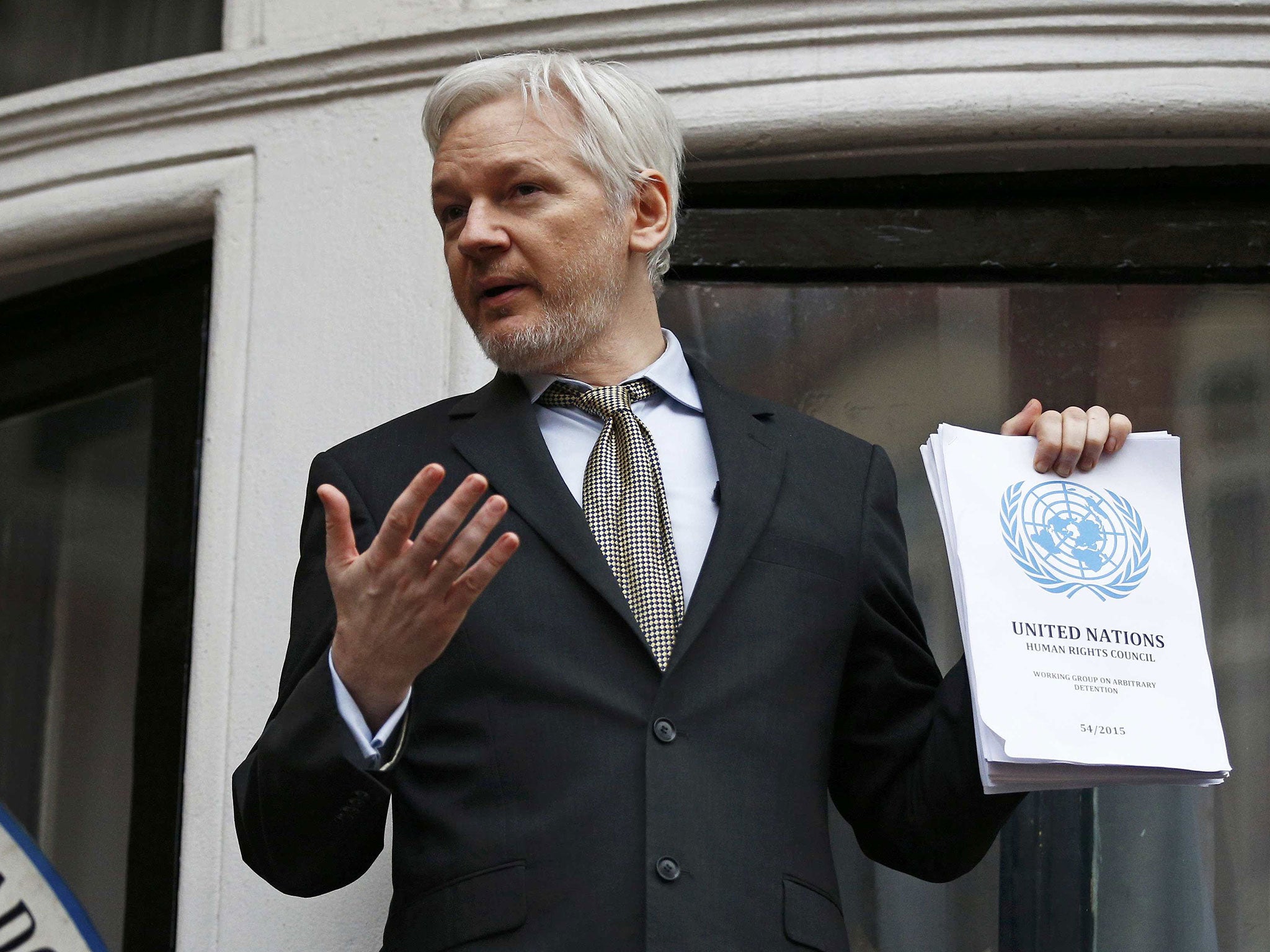Julian Assange: Swedish lawyers ask court to overturn arrest warrant against Wikileaks founder
Journalist has spent the last three years in Ecuadorian embassy in London after failing to fight extradition to Sweden to face questioning over rape allegations

Your support helps us to tell the story
From reproductive rights to climate change to Big Tech, The Independent is on the ground when the story is developing. Whether it's investigating the financials of Elon Musk's pro-Trump PAC or producing our latest documentary, 'The A Word', which shines a light on the American women fighting for reproductive rights, we know how important it is to parse out the facts from the messaging.
At such a critical moment in US history, we need reporters on the ground. Your donation allows us to keep sending journalists to speak to both sides of the story.
The Independent is trusted by Americans across the entire political spectrum. And unlike many other quality news outlets, we choose not to lock Americans out of our reporting and analysis with paywalls. We believe quality journalism should be available to everyone, paid for by those who can afford it.
Your support makes all the difference.Lawyers have made a formal request to a Swedish court to overturn Julian Assange's arrest warrant in a rape case.
The journalist has spent more than three years hiding in the Ecuadorian embassy in London after his appeal against extradition failed in the UK courts.
Thomas Olsson, one of Assange's lawyers, said in a statement: "We consider that there have arisen a number of new circumstances which mean there is reason to review the earlier decision".
It follows the opinion published by a UN working group earlier this month that Assange had been "unlawfully detained" in the embassy.
Assange filed a complaint in 2014 with the UN committee - arguing that he was "arbitrarily detained" because he could not leave the embassy without being arrested.
He was first accused of one count of rape and another of molestation of two Swedish women by the Swedish Prosecutors' Office in August 2010 but was initially released and allowed to leave the country.
A few months later he was arrested for a second time in London and released on bail following an extradition hearing.
In 2012, the UK Supreme Court ruled that he should be extradited to Sweden to face questioning over the allegations - which he has said are "without basis".
After the ruling he entered the Ecuadorian embassy in Knightsbridge where he claimed political asylum - he alleges if he is sent to Sweden he will be rendered to the US to face trial and possible torture over his role in the Wikileaks revelations.
It comes as Sweden's Director of Public Prosecution, Marianne Ny, said they were working on a new request to interview Assange in London.
She said a previous request had been rejected by the Prosecutor-General of Ecuador in January.
Additional reporting by Reuters
Join our commenting forum
Join thought-provoking conversations, follow other Independent readers and see their replies
Comments